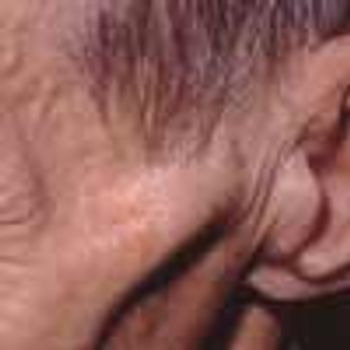
Frightened but lucid man who appears stated age. Vital signs are normal. No mass palpable in abdomen, though there is a faint suggestion of upper-abdominal distension. No supraclavicular lymphadenopathy, umbilical nodules, or upper-abdominal vascular bruit.






























































































































